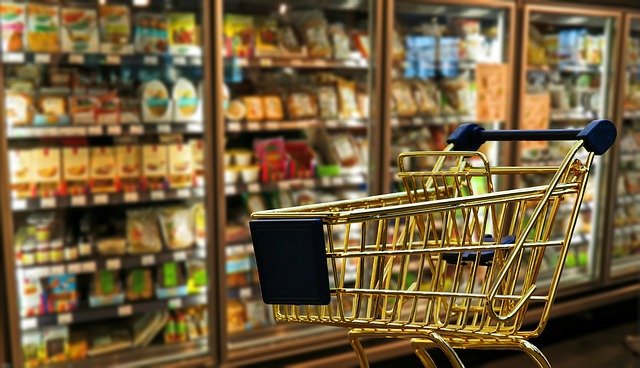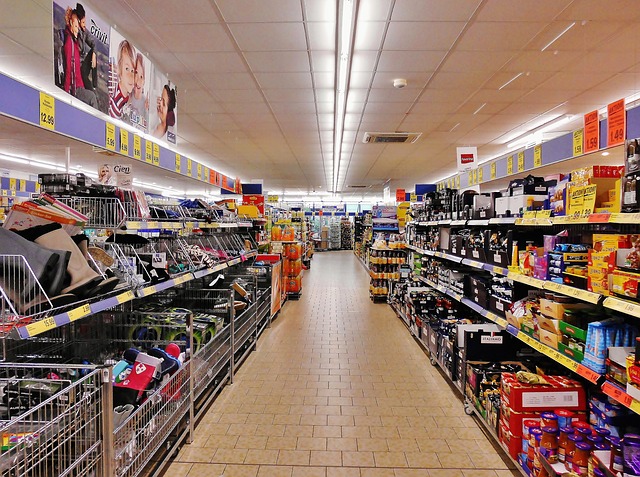
The customer must use a cart or basket to carry the products to the checkouts
Supermarket is a concept created as a copy of the English word supermarket . Mentioned as an automercado in Venezuela , it is an establishment dedicated to the retail sale of multiple products under the self-service modality.
Serve yourself
Whoever buys in a supermarket, therefore, walks through the facilities and takes those items they want to purchase, which they can deposit in a basket ( basket ) or in a cart . Once they have everything they were looking for, the customer must go to a cash register and pay.
In a supermarket you can buy food , cleaning supplies and personal hygiene products , for example. Larger supermarkets, called hypermarkets , usually also offer clothing , ready-made meals , and vehicle wheels , among other options.
Strategic layout
The products for sale are distributed in display furniture known as gondolas . The location of the products on the shelves, and of the shelves themselves in the building, is not coincidental: the objective of the supermarket is to ensure that people have to go through the entire establishment to satisfy their basic needs since in this way the chances that you will also purchase other items.
In addition to the strategy used to keep the public moving, supermarkets usually use another complementary one: changing the location of the products with a certain frequency. This is not always subtle, but sometimes the relocation is drastic and applies even to critical items. If we have been shopping in the same store for a long time and we have already memorized the location of everything, the impact can be considerable since it forces us to walk through a large part of the building as if it were our first visit.
Competitive prices
Supermarkets generally have lower prices compared to small markets and neighborhood stores. This is possible thanks to the position of power they hold when negotiating with suppliers since the strength of their business is not in the profit margin but in the sales volume .
Of course, small merchants do not suffer this difference to the point of losing their space in the market, because their stores offer a faster experience in every sense: the smaller amount of products and the proximity to the street mean that we can make the purchase in a fraction of the time. couple of minutes , while a visit to the supermarket tends to be inevitably longer and more tiring. In addition, there are many more small markets per neighborhood, so if we get thirsty and just want a drink, we will probably get to one of these sooner than to a supermarket.

The largest supermarkets offer products beyond food
Online supermarket
An online supermarket (or online , if we use the anglicism), on the other hand, is a website where customers can choose products, pay for them remotely and receive them at their home. Nowadays it is common for traditional supermarkets to also have an online version.
This modality has its advantages and disadvantages. On the one hand, it is much more convenient than the traditional one, because we can make the purchase from anywhere, through the telephone or computer, and decide what day and in what time slot to receive it . If we have a very busy week or are immobilized due to an illness, for example, having this service is a dream.
Of course, online shopping is not perfect. Perhaps its biggest disadvantage is the inability to compare prices comfortably, as if we were in the establishment, discover offers that may not have been added to the digital catalog or even ask questions to other people. Simply put, home shopping is for those who know exactly what they need, while in-person shopping invites exploration and discovery of new products.
